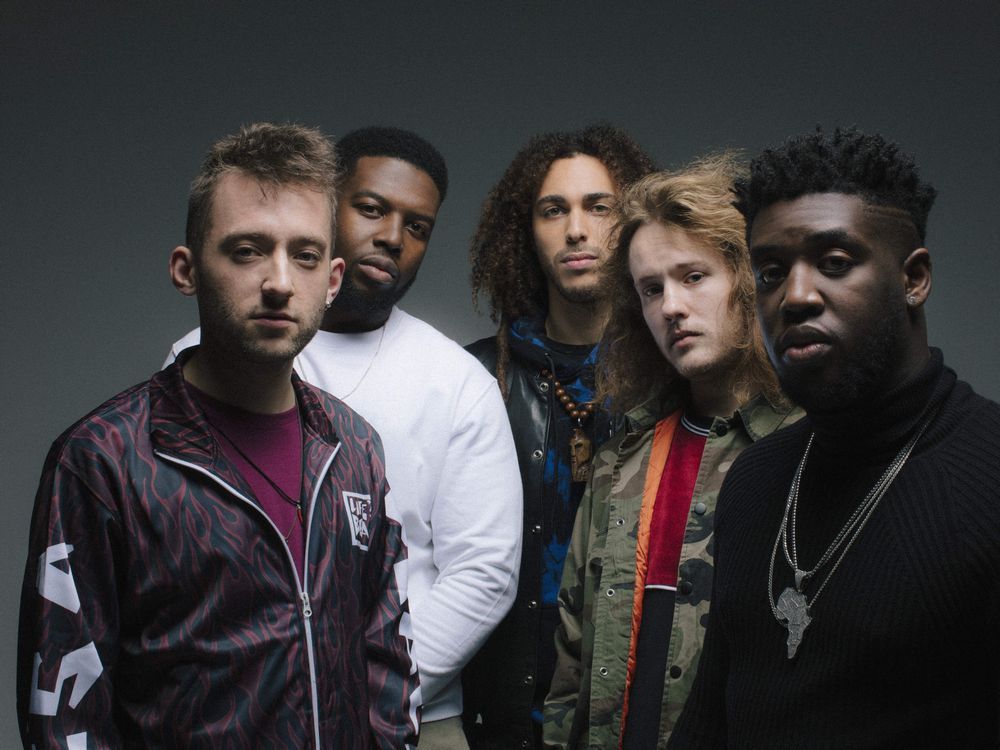Ezra Collective spreads the joy of London's lively new jazz scene

Credit to Author: Stuart Derdeyn| Date: Tue, 10 Dec 2019 19:13:43 +0000
When: Dec. 14, 7:30 p.m.
Where: The Fox Cabaret
Tickets and info: $16 at tickeweb.ca, Red Cat Records and Zulu
You Can’t Steal My Joy dropped in late April. The title of the fourth recording from London’s buzz-heavy Ezra Collective is as much a mission statement about the musicians as it is about the music.
In just a few years since forming, the quintet headed by drummer Femi Koleoso has gone from an underground act to hypes in the New York Times and global bookings. The new album’s lead single, Quest for Coin, had its BBC 1 premiere on the taste-making Annie Mac show billed as the “hottest record in the world” that week.
Instrumental jazz tracks get that kind of billing once in a lifetime, if ever. But the dynamic, young U.K. jazz scene blowing up right now is well-poised to put itself in the pop charts. Ezra Collective even played Glastonbury 2019.
Not since the heyday of the ’70s jazz-fusion movement has the blending of jazz improvisation with genres ranging from dubstep, funk, pop and all manner of global grooves come up with sounds as heady and, yes, joyful as the jams being dropped by the likes of Ezra Collective, Nubya Garcia, Sons of Kemet, Theon Cross and others.
“I feel like what we’ve seen in the last two years is the product of a lot of excellent and amazing people investing in keeping jazz alive amongst young people in previous years and the reward being delivered in this new wave of jazz coming out of the U.K. in the past two or three years,” said Koleoso. “When you study the history of the art form, it’s always been a way for people to express themselves that is also always changing. Where else could you have as different an artist as Louis Armstrong and Ornette Coleman under the same banner?”
The U.K.’s musical culture is far more “mix-mastered” in terms of both its openness and variety. This has long explained the emergence of hybrid genres and styles, ranging from the ’70s Two Tone scene to Bristol trip hop and contemporary grime sub-genres such as drill. The new jazz scene is equally varied in both its sounds and makeup.
Koleoso, with his brother and drummer TJ, bassist keyboardist Joe Armon Jones, trumpeter Dylan Jones and saxophonist James Mollison have crafted 13 tracks incorporating all manner of styles on You Can’t Steal My Joy. Guest appearances from scene peers ranging from singer Jorja Smith to the Kokoroko Afrobeat Collective and rapper Loyle Carner just serve to enhance the tight playing of the core band. Naturally, there are those who don’t see the music Ezra Collective is making as fitting into their doctrinaire definitions of what is jazz.
“It’s interesting to me that a lot of what is being written about, said about, what’s happening in the U.K. today is similar to how people spoke and wrote about free jazz back in the late ’60s,” he said. “There is this beautiful process of seeing people discovering and leaning upon the great jazz traditions from previous years to bringing in someone such as Kamasi Washington, which has been a huge influence on us all. I like to think I bring in both that Wynton Marsalis traditional view with Flying Lotus to arrive at these different kinds of songs.”
It seems key that one of the things that has always made jazz vibrant has been the incorporation of the musical traditions that subsequent waves of immigrants have brought to the sonic palette. Every new group coming to a global metropolis such as London arrives with its sounds, and the common language of artistic communication is jazz. That can range from a distinctly chilled reggae-tinged track such as Red Whine to the slamming blast of King of the Jungle.
“The minute you step outside of your apartment in London, the world is there and you can travel without a passport,” he said. “You go to school with someone from Turkey and Poland, grow up with Bangladeshis, Nigerians and Jamaicans, and you just don’t have that kind of access and influence in Russia or Spain. Being a Londoner, more so than a musician, means I use jazz to articulate all the aggression and all the beauty that comes with growing up and living in the city.”
Yet for all of the experimentation and different cultural hybrids being blended up in the new jazz scene in the U.K., underneath all of the music is something inherently danceable. You get the sense that any of the Ezra Collective’s songs could be remixed into some kind of a club banger by the right-minded DJ.
“In some ways, that’s what we’re doing with our music too,” he said. “Say me and some of the band are listening to a swinging version of Cherokee and thinking, ‘I bet that would be brilliant with a heavier drum and bass beat,’ and then we do it. It’s one of things that drew me to jazz in the first place, because it celebrates the remix.
“It’s like, there can really only be one version of Smells Like Teen Spirit. There are hundreds of versions of Caravan or Take the A Train out there and they are all rebuilds and reworks of another version and, one hopes, worthy in their own right.”
The Ezra Collective is on the move to make music that both pleases the audience and the players. You Can’t Steal My Joy is a powerful declaration of intent: Dance, think, feel and be free.